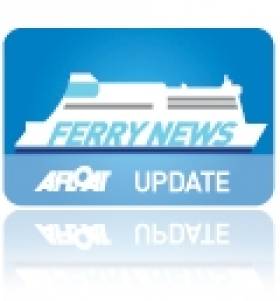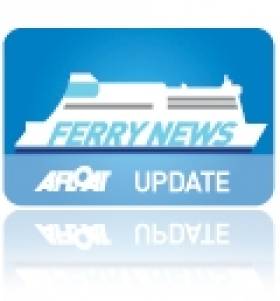Displaying items by tag: HeyshamMax newbuilds
Another Fine Performance
#SEATRUCK NEWBUILD - With the announcement of Seatruck Ferries new Belfast-Heysham route to open in May, the company have in the meantime introduced a newbuild this week on the Dublin-Heysham route, writes Jehan Ashmore.
Seatruck Performance brings additional capacity to the route to Lancashire and becomes the third newbuild to enter the Irish Sea where her sisters are operating Dublin-Liverpool sailings.
She has a length of 142 m, breadth of 25 m and a capacity of 151 units, which is 35 more than the earlier 'P' Class ships which have shifted elsewhere on the Seatruck network.
The final fourth vessel Seatruck Precision as previously reported is currently under construction at the FGS Flensburg yard in Germany and is expected to make her debut on the Irish Sea in June.
- Seatruck Ferries
- Seatruck Performance
- Seatruck Precision
- Irish Sea freightferry market
- Irish Sea freight haulage market
- Irish Sea roadhaulage sector
- Ports and Shipping News
- DubliLiverpool
- DublinHeysham
- BelfastHeysham
- FGS
- FGS Flensburg
- HeyshamMax newbuilds
- Pclass Seatruck newbuilds
- Port of Heysham
- New Irish Sea freightferry
First Heysham-Max Newbuild Launched for Seatruck Ferries
The quartet of Heysham-Max class vessels are the largest ever vessels built to operate from the Cumbrian port which has determined the length of the new ships. Despite the restrictions imposed by the dimensions of the port, the optimum cargo-load of the newbuilds were achieved by positioning the deckhouse forward so to guarantee un-hampered loading of the upper decks.
Propulsion is from two MAN 7L48/60CR main engines of 2 x 8,000kW providing 21 knots. The powerplant is designed to meet rigorous emission and fuel consumption demands, according to FSG managing director Peter Sierk.






























































